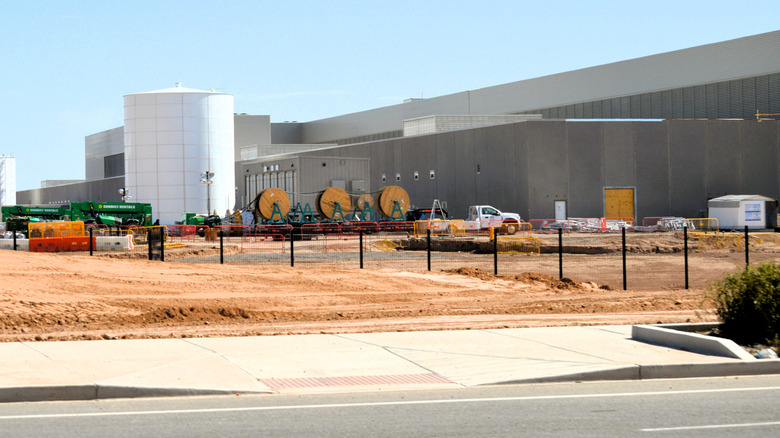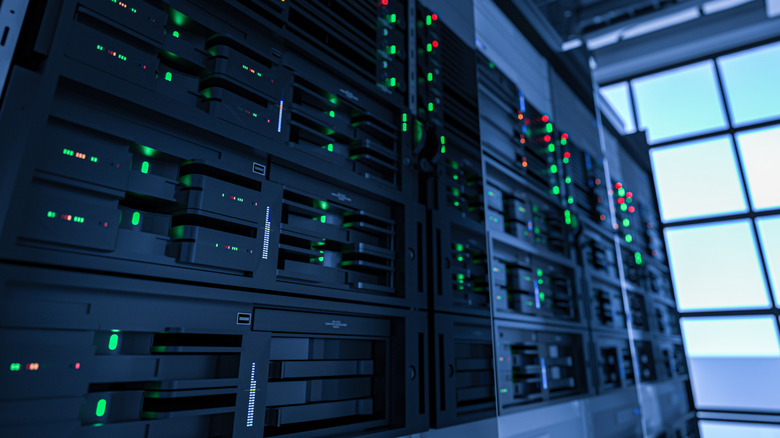Meta's New AI Data Center Is The Size Of 70 Football Fields And Residents Are Left 'Scared'
Modern computing needs electricity; that's common sense. But the more powerful and more numerous the computers, like in a massive server farm for cloud or remote computing, the more power is needed. In the U.S., data center power consumption is likely to reach 35 gigawatts by 2030, an increase from 17 gigawatts in 2022. That explains why big tech is going all-in on nuclear energy to generate more power. However, power isn't the only resource data centers consume in droves. A single data center can soak up 5 million gallons of drinking water per day. Water is used to reduce heat generated by the computers, and is often treated with chemicals to prevent corrosion and bacterial growth. Not only are these facilities using tons of power, and water — drinking water locals need — but they are essentially contaminating the water so it cannot be repurposed. It's no surprise when Meta began building an absolutely massive AI Center in Louisiana, the size of 70 football fields, no one was happy about it. Worse yet, the locals are 'scared' about its impact, and for good reasons.
There is a precedent, the Louisiana locals don't seem to be overreacting. Residents of Newton County, Georgia, where another Meta AI data center was built, have reported issues with their own water supply, including water that stopped working, appliances that have repeatedly died and been replaced, and water that turns brown. A Meta spokesperson claims water for construction on that project was taken from more than 10 miles away from those affected and therefore it's "very unlikely" the facility impacted them. But for the Louisiana residents and the new $10 billion data center, the Georgia water experiences and additional requirements form a collective concern. Who really pays? For both the damage and additional expenses?
Massive AI data centers come at a cost, but who pays?
Meta isn't the only company building massive data centers, for AI or any other computing-related purpose. President Trump has a plan to expand artificial intelligence and build data centers all across the United States. Regardless, many data centers are being developed — not unlike the new Louisiana facility. The problem or question, rather, is who foots the bill for the added infrastructure and resource requirements for these locations? Meta's new Louisiana facility, said to be the size of 70 football fields, will require a $3 billion upgrade to local electricity infrastructure to maintain its operation. Meta and the power company Entergy agreed to build gas-powered plants to produce 2,262 megawatts of additional energy, but nondisclosure agreements prevent the public sharing of just how much Meta will pay. That could mean some of the cost is being passed on to residents and current customers. The AI boom might even be triggering electrical surges and outages in areas without appropriately robust infrastructure.
When you consider how much energy and water ChatGPT and services like it consumes, the implications are somewhat frightening. This is all happening at a time when electricity costs are rising already. And that's before considering the implications for local drinking water and the surrounding water supply. Louisiana is currently in a drought with 1.4 million residents affected according to the National Integrated Drought Information System (NIDIS). It's not difficult to imagine that the consumption of 5 million gallons of local drinking water, or more, could affect residents, agriculture, and beyond. When considering the gravitas of these massive centers it's not unreasonable that local residents are left 'scared,' for their community and the impact the new facilities will have on them.

